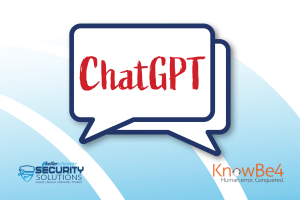
Security Tip of the Week – New Alert! Cybercriminal at Your Door
In a recent scam, cybercriminals are sending phishing emails spoofed as Ring to try and steal customers’ sensitive information.
Each month, Keller Schroeder’s subject matter experts provide content about the latest tools, services, and technologies to help you understand how you can better grow, protect, and optimize your technical environments. We also share weekly cybersecurity tips and you can find business cultural and leadership knowledge from our President.

In a recent scam, cybercriminals are sending phishing emails spoofed as Ring to try and steal customers’ sensitive information.

Cybercriminals recently combined hacking and phishing in an attack against Namecheap. Don’t fall for this tricky scam!

In a new phishing scam, cybercriminals are using ChatGPT’s popularity to trick victims into thinking they are investing in the stock market. Don’t fall for it!

In a recent social engineering attack, a cybercriminal imitated a company’s IT department to trick its employees into sharing sensitive information.

In a recent spear phishing attack, cybercriminals sent fake emails disguised to trick Reddit employees into sharing their credentials.

It’s the most wonderful time of the year…for cybercriminals. Keep your sensitive information safe this tax season with these tips.

In a new phishing scam, cybercriminals are impersonating EkiNet to take advantage of people’s need for transportation tickets.

Cybercriminals have been using blank images and documents in emails to bypass security filters and redirect you to malicious websites.

Cybercriminals have been taking advantage of single sign-on (SSO) services in their recent smishing (SMS phishing) scam.

Cybercriminals use social engineering to access the social media accounts of everyday users and post items for sale from the hacked account.
Want to receive our monthly newsletter? Send us your contact info below to join our mailing list.